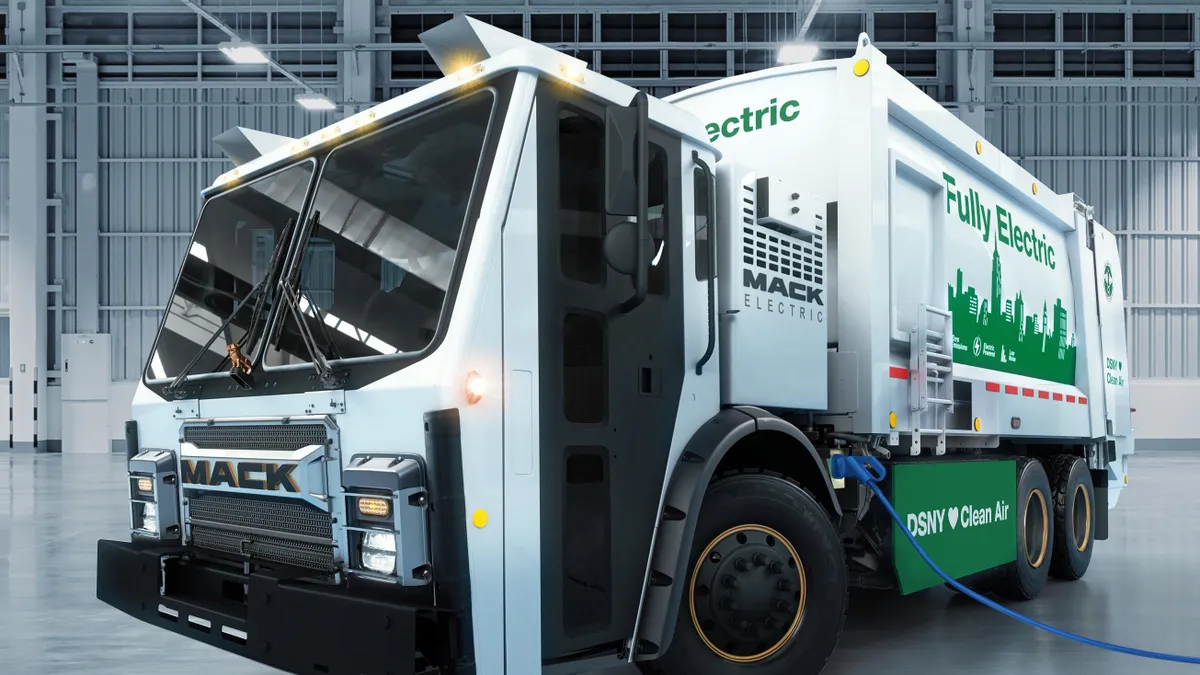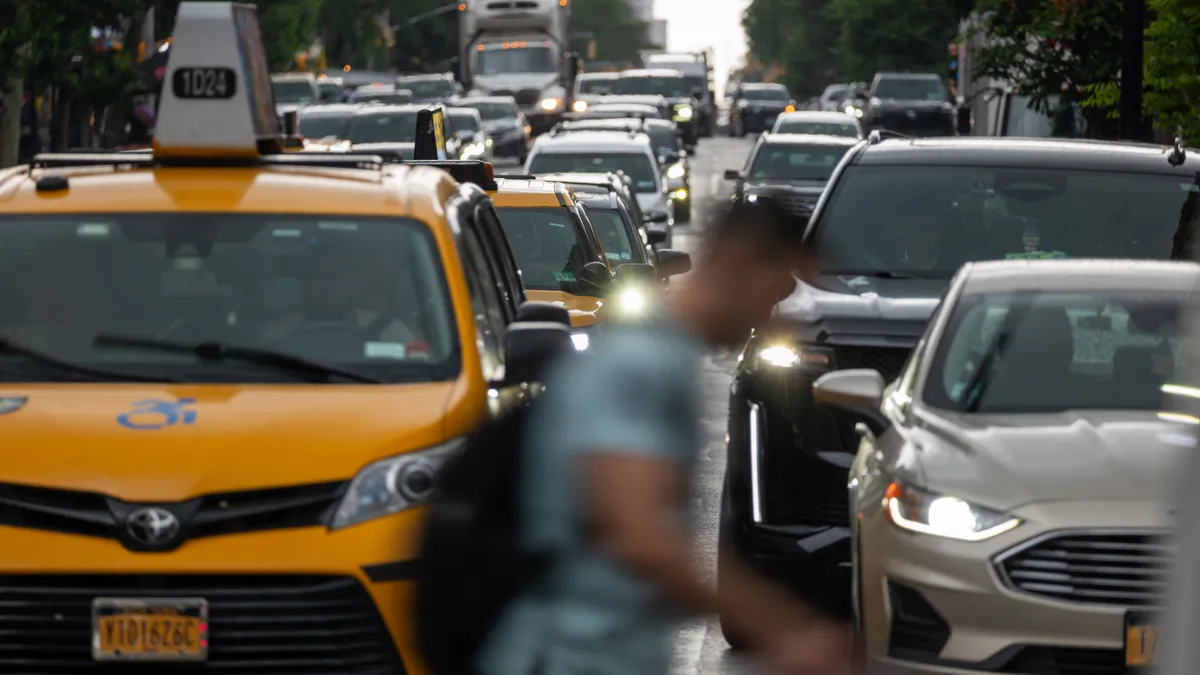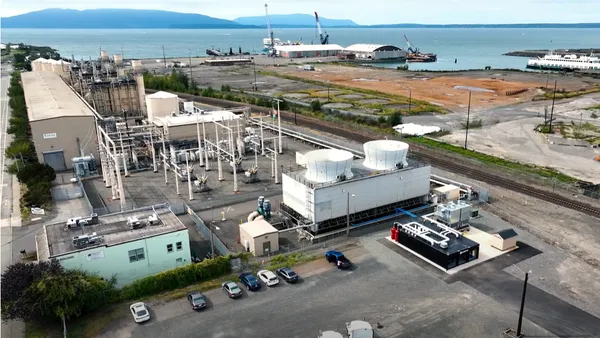Dive Brief:
- Renewable natural gas and electric vehicle adoption is rising across the waste sector, according to the 2023 State of Sustainable Fleets report released today by environmental consulting group Gladstein, Neandross and Associates. Compressed natural gas vehicle deliveries increased 13% from 2021 to 2022, and haulers placed nearly 40 orders for battery-electric refuse trucks last year, the report said.
- The latest adoption numbers come as broader public funding for clean fleet technologies is expected to average $32 billion per year for several years, according to the researchers.
- They anticipate that diesel engine improvements will soon be eclipsed by cleaner technologies as zero-emission vehicles become “the law of the land.”
Dive Insight:
The waste industry dominates the market for straight trucks. With 2,500 CNG vehicle deliveries of straight trucks last year, that category was in the top three for deliveries among the trucking industry. The continued interest from the waste industry is buoying the compressed natural gas truck market amid ongoing supply chain constraints, according to the new report.
The 13% increase in CNG deliveries came after falling 30% the previous year. The category includes models from several brands, including Volvo, Peterbilt and Autocar.
Natural gas vehicles are increasingly popular among haulers looking to show they can cut tailpipe emissions, and they are especially attractive to big players like WM, which is investing in expanding its renewable natural gas capacity.
The investments also come as more states, most recently Maryland, begin to adopt California’s more stringent rules to transition truck fleets to zero emissions. The EPA has released its own proposal, which would speed up the process by which fleets must deploy zero-emission vehicles.
The growth in battery electric refuse truck orders is another sign of industry expectations for more stringent emission standards. In 2022, the majority of those orders were for Mack Trucks and Battle Motors, according to the researchers, but additional models from Autocar and other manufacturers are expected to be in the mix soon.
In at least one instance, a pilot program has led to the expansion of an electric fleet: New York City's Department of Sanitation has placed a follow-on order for seven electric rear-loader Mack Trucks after piloting one in 2020 and 2021, DSNY confirmed.
Other cities, including Seattle; Fort Collins, Colorado; and Ocala, Florida, have begun instituting pilot programs of their own for the specialized electric vehicles.
That said, battery electric waste trucks still need to overcome some limitations to achieve wide acceptance. In New York City, refuse trucks must also serve as snowplows, and DSNY Commissioner Jessica Tisch has previously noted that the Mack LR Electric trucks her agency has deployed don’t have the battery life to serve that function.
Despite interest in EVs across the trucking industry, the researchers report that adoption rates are still low. They found just six vehicle fleets across the industry have a 10% or higher EV penetration rate, with the industry average just 4%.
Major trucking industry players Penske Transportation Solutions, Shell, Daimler and Dana funded the research, which was conducted and compiled by transportation and energy consultants Gladstein, Neandross and Associates.














